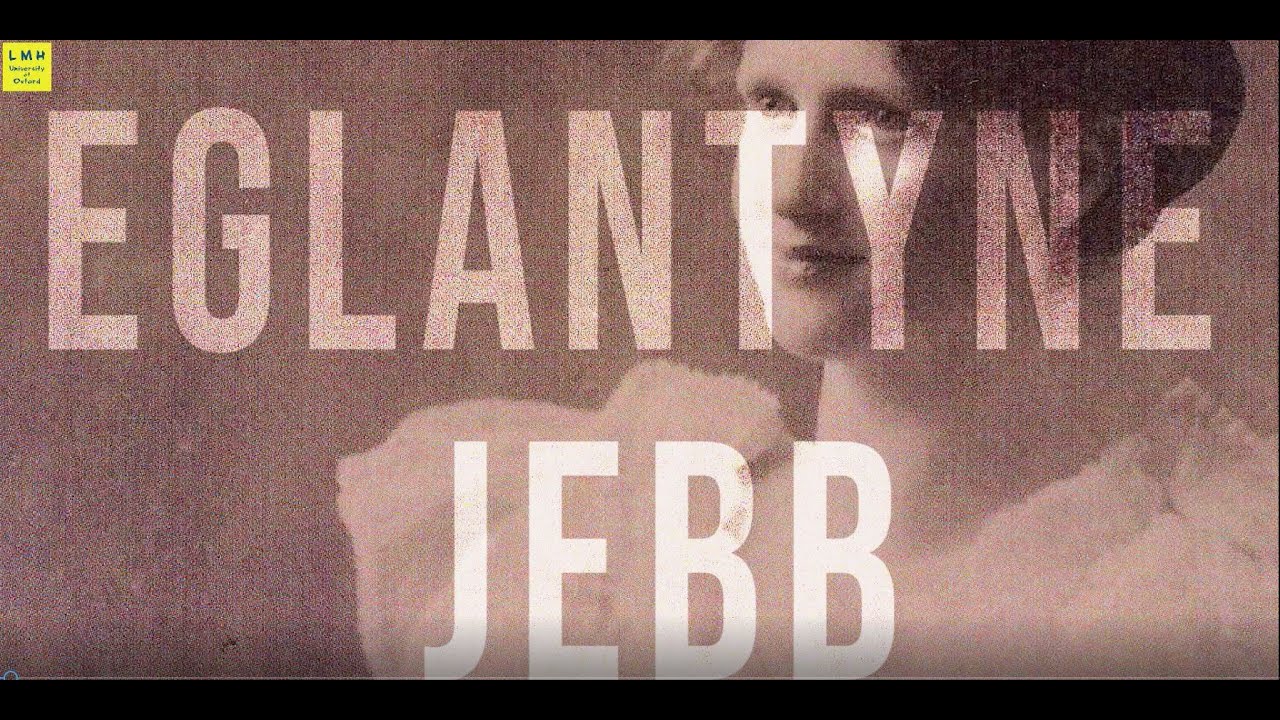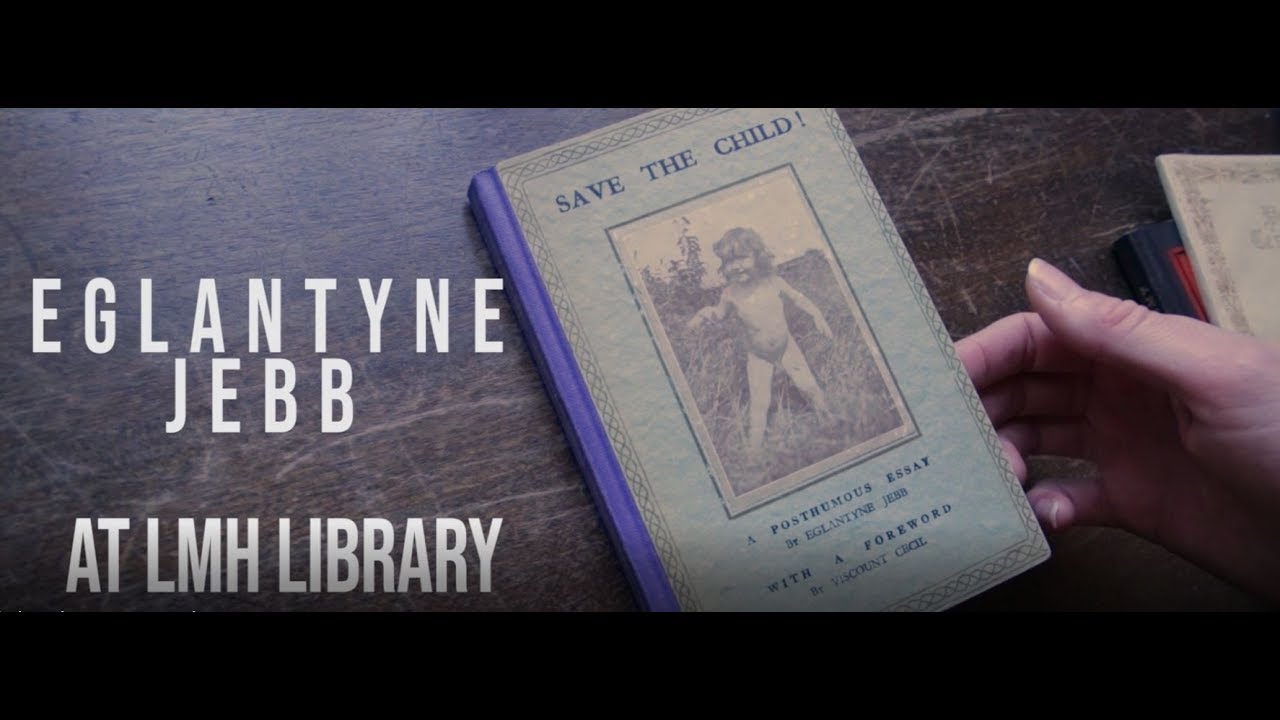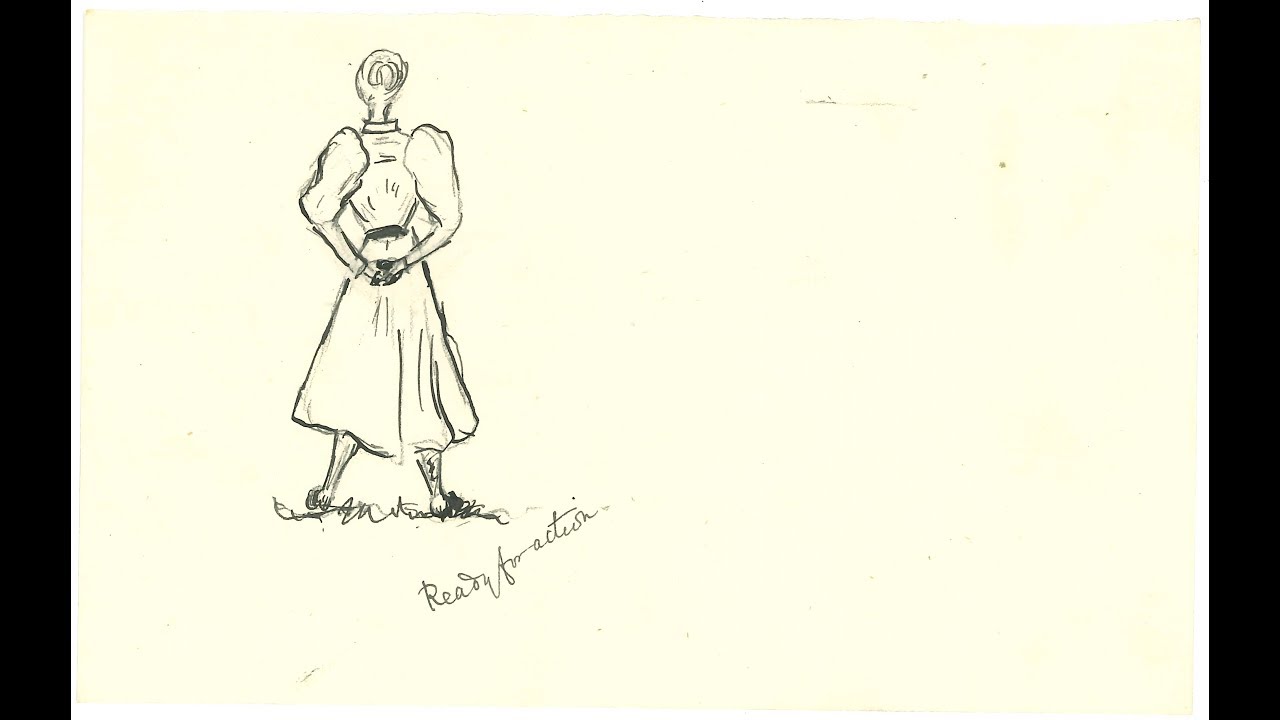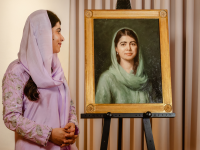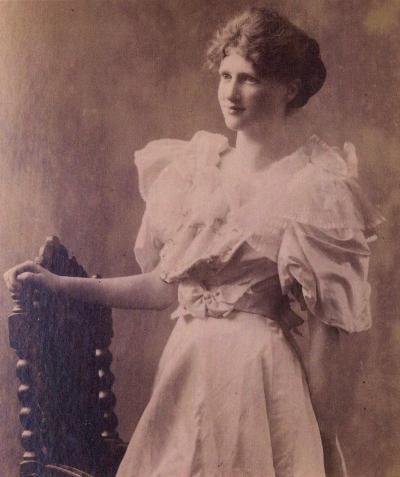
Eglantyne Jebb was a student at LMH from 1895–1898, who later rose to international fame as the founder (along with her sister) of Save the Children. She was an outspoken critic of class divides, and railed against poverty in all its forms: she was known as the "White Flame" due to her burning conviction and passion. Whilst she was at LMH she apparently removed the carpet and all furniture from her room apart from a bed, desk, and washstand: “questions connected with luxury and expenditure are so difficult”, she explained.
E. Jebb, The Real Enemy (London: Weardale Press, 1928) Librarian’s Office 821.99 25
Photograph of Eglantyne Jebb at LMH. LMH Archives, Album 8 Drawings by Eglantyne Jebb. LMH Archives, Deposit 21/5
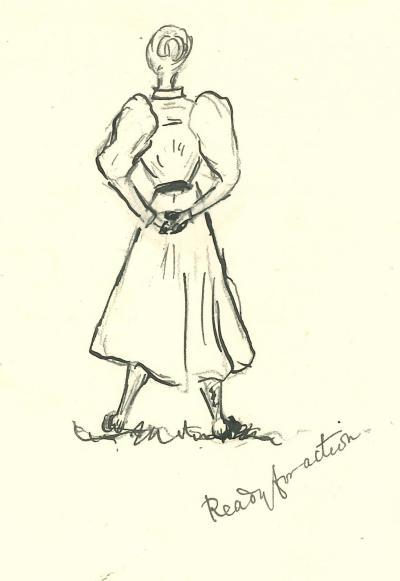
Founding Save the Children
After leaving LMH Jebb moved to Cambridge, where she studied the lives of the people in the town and pointed out the massive inequalities that many academics ignored. Then, following a trip to Macedonia in 1913 where she worked with refugees of the Balkan War, she became interested in foreign aid and the plight of refugees and those caught in famines.
After Armistice, when the Blockade continued and Central Europe was plunged into famine, she helped to found Fight the Famine Council. However, it focused on political arguments, and she felt it wasn’t doing enough practical work, so on the 15th April 1919 she founded Save the Children. Many felt that a fund raising money for the children of their recent enemies wouldn’t be successful, but after a public launch on the 19th May in the Royal Albert Hall, money started to come in, with early support from the Miners’ Trade Union. This was boosted after she persuaded the Pope to support the fund on Innocent’s Day, 28th December 1919.
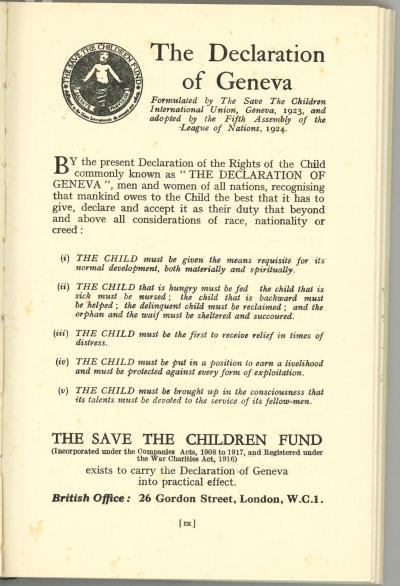
The Rights of the Child
Save the Children became an international organisation based in Geneva in January 1920, supporting children in Central Europe and then soon after in the Russian Famine. They used innovative publicity and fund-raising techniques, including large adverts with actual photos of suffering children, to hammer home the terrible conditions in which children were suffering.
They also pushed for political influence, successfully persuading the new League of Nations to endorse the Declaration of the Rights of the Child (drafted by Eglantyne Jebb herself) on 26th November 1924—the first human rights document approved by an inter-governmental institution.
Sadly Jebb was in failing health due to a thyroid problem, and after three operations for goitre she died in Geneva on 17th December 1928; 90 years to this day. Her death is still remembered in the Church of England liturgical calendar.
